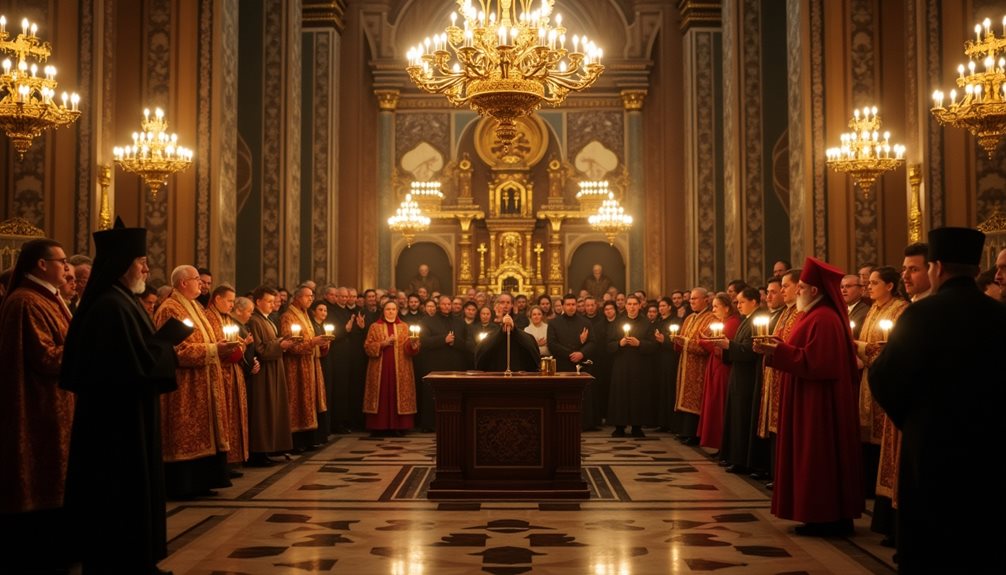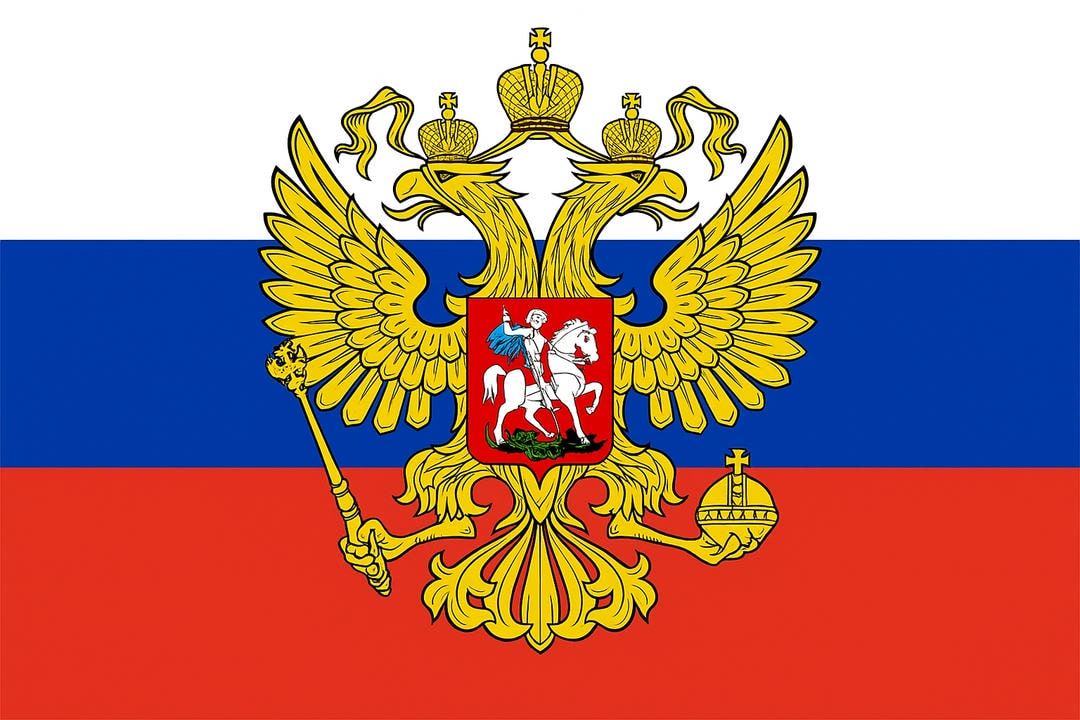The tradition of Russian winter swimming during the celebration of Epiphany is a fascinating blend of religious devotion and communal spirit, deeply embedded in historical customs. This practice involves participants immersing themselves in frigid waters to symbolize spiritual rebirth and purification, reinforcing both faith and resilience. As the event draws near each year, the meticulous preparation and the myriad benefits it offers, from enhanced physical health to mental fortitude, come into focus. What remains particularly intriguing are the modern adaptations and the continued allure of this age-old ritual. How has this tradition evolved, and what keeps it relevant in contemporary society?
Historical Background
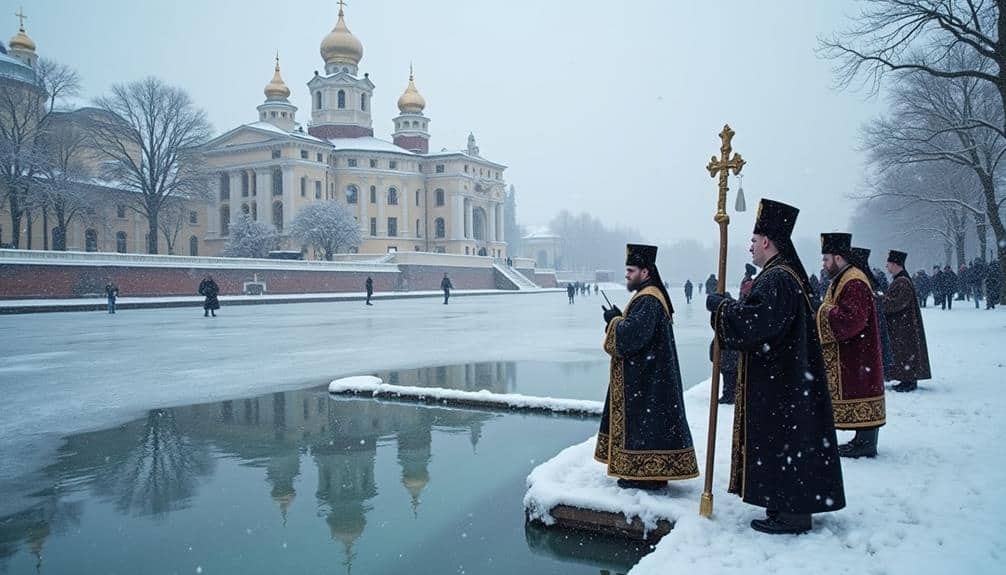
Russian winter swimming, often referred to as “morzhei,” has roots that stretch far back into history. This invigorating practice is deeply embedded in Russian culture, reflecting a blend of resilience and a profound connection with nature. The cultural origins of morzhei can be traced to ancient Slavic traditions, where plunging into icy waters was a ritual believed to purify the body and strengthen the spirit.
These early practices were not merely acts of physical endurance but were symbolic gestures of renewal and liveliness. Traditional practices of winter swimming evolved over centuries, becoming a celebrated aspect of Russian communal life.
Villagers would gather at frozen lakes and rivers, carving out sections of ice to create makeshift pools for communal dips. These gatherings were often accompanied by songs, dances, and festive meals, fostering a sense of unity and shared experience. The act of immersing oneself in freezing water transcended mere physicality; it was a demonstration of one’s fortitude and an expression of freedom from the constraints of the harsh winter environment.
In modern times, morzhei continues to thrive, resonating with those who seek liberation from the confines of everyday life through this timeless, invigorating tradition.
Religious Significance
While morzhei has deep cultural roots, its religious significance is equally profound. The ritual of winter swimming, particularly during the celebration of Epiphany, serves as a powerful act of spiritual cleansing.
Rooted in Orthodox Christian traditions, this event commemorates the baptism of Jesus Christ in the River Jordan. Participants believe that immersing themselves in icy waters washes away sins and renews their spiritual purity. This practice, consequently, transcends mere physical endurance, offering believers a profound connection to their faith.
The communal aspect of this ritual cannot be overstated. As families and friends gather at the water’s edge, the act of plunging into the freezing depths becomes a form of community bonding.
It is not solely an individual endeavor but a collective experience that reinforces social ties and shared beliefs. The mutual encouragement and support foster a sense of unity and belonging among participants, enriching the spiritual significance of the event.
Moreover, the Epiphany swim acts as a public affirmation of faith. In a society that values freedom of expression, participating in this time-honored tradition allows individuals to openly celebrate their religious convictions.
This blend of spiritual cleansing and community bonding underscores the enduring relevance of this ritual in contemporary Russia.
Ritual Preparation
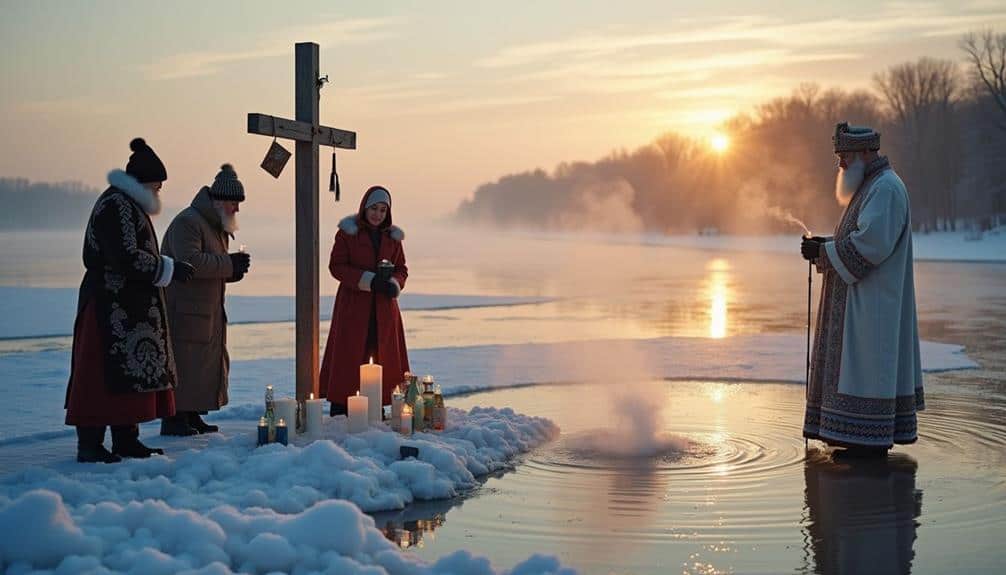
Preparing for the ritual of winter swimming, known as morzhei, involves both physical and mental conditioning. The icy plunge during the celebration of Epiphany is not undertaken lightly; participants must ready themselves to face the frigid waters with resolve and preparedness.
This preparation starts with selecting appropriate swimming attire. Swimmers typically wear minimal clothing, such as swimsuits, to reduce the risk of hypothermia while allowing for swift movement in the water. However, accessories like woolen hats and neoprene gloves can be employed to shield extremities from the bitter cold.
Equally important is mental preparation. The act of immersing oneself in freezing water demands a resilient mindset. Practitioners often engage in meditative exercises and controlled breathing techniques to cultivate focus and calm.
Building mental fortitude is essential, as the initial shock of cold water can trigger a fight-or-flight response. Visualization practices, where swimmers mentally rehearse the experience, further bolster their psychological readiness.
Health Benefits
Engaging in winter swimming, particularly the practice of morzhei, offers a plethora of health benefits that extend beyond mere physical endurance. One of the most significant advantages is the immune boost it provides. Regular exposure to cold water is believed to stimulate the production of white blood cells, enhancing the body’s ability to fend off infections. This immune system fortification can lead to fewer colds and other common illnesses, allowing individuals to enjoy a healthier and more liberated lifestyle.
Moreover, winter swimming fosters remarkable mental resilience. Immersing oneself in icy water requires substantial mental fortitude, teaching practitioners to manage stress and overcome fear. This mental conditioning can translate into improved coping mechanisms in daily life, empowering individuals to face challenges with greater confidence and composure.
The psychological benefits extend to increased mood stability, as the release of endorphins during cold exposure can combat symptoms of depression and anxiety.
The health benefits of winter swimming are multifaceted, encompassing both physical and mental well-being. As a practice deeply rooted in tradition yet profoundly relevant today, morzhei offers a holistic approach to health that aligns seamlessly with a free-spirited, mindful way of living.
Modern-Day Observance
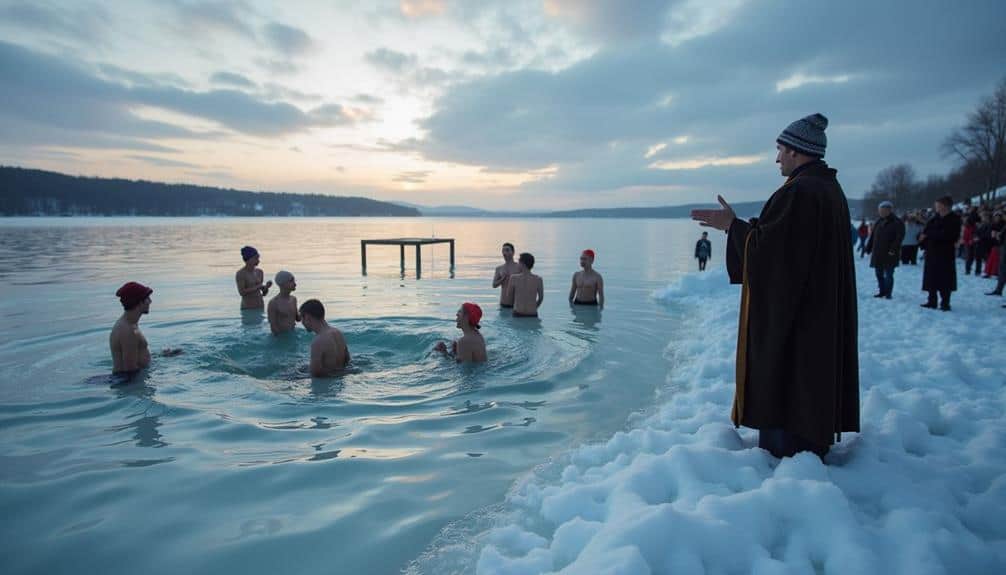
Today, winter swimming is not only a traditional practice but also a burgeoning modern-day phenomenon embraced by a growing number of enthusiasts worldwide. This age-old ritual, deeply rooted in Russian cultural traditions, has transcended its religious origins to become a celebrated act of personal liberation and communal engagement.
Modern-day observance of winter swimming sees a blend of historical reverence and contemporary fervor. Community events centered around the Epiphany celebration, where participants plunge into icy waters, have evolved into festive gatherings. These events attract both seasoned practitioners and curious newcomers, fostering a sense of collective achievement and camaraderie.
In Russia, organized winter swimming clubs have sprouted across cities and towns, offering structured environments for those keen to experience the invigorating practice. These clubs often incorporate educational sessions on cold-water safety and health benefits, underscoring the practice’s holistic appeal.
Beyond Russia, winter swimming has garnered international attention, with enthusiasts from diverse backgrounds partaking in similar community events. The global spread of this tradition highlights its universal allure: the quest for physical resilience, mental fortitude, and a profound connection to nature.
Consequently, modern-day winter swimming remains a vibrant reflection of the enduring spirit of cultural traditions, now amplified by the freedom to explore and celebrate in unity.


